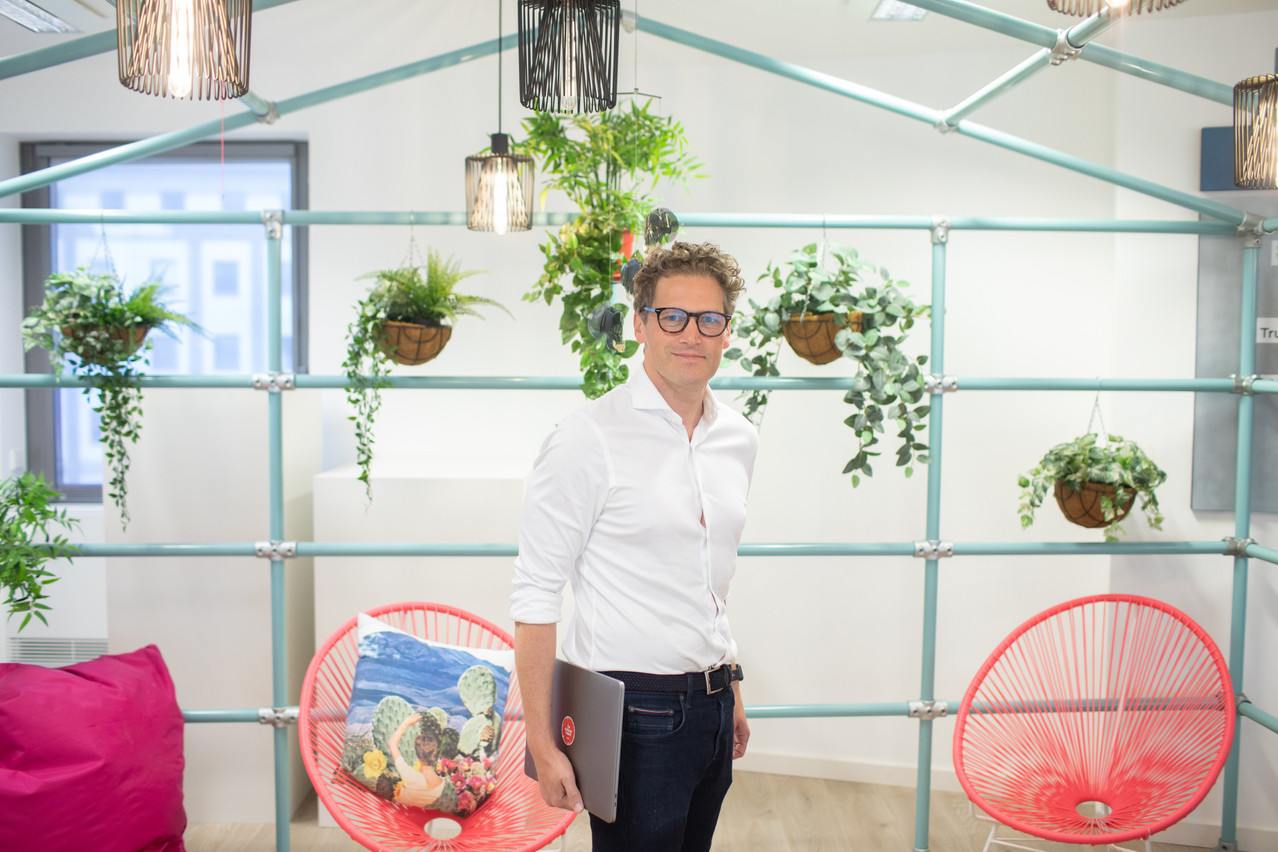Only 1% of European SMEs have access to capital markets, while individual investors do not have access to investments in SMEs. Based on this observation, Tobias Seidl and Arnab Naskar founded the fintech startup Stokr in 2018, launching a peer-to-peer investment platform that connects investors with companies seeking funding. Stokr managed to raise €3m and is currently based at the Luxembourg House of Financial Technology.
Unlike traditional companies active in venture capital, Stokr distinguishes itself by a participatory investment interface built on blockchain technology. The platform issues tokens via security token offerings (STOs), with which investors can finance innovative SMEs in return for future profits from the company. “We help the issuer to issue securities, via the blockchain, directly to investors,” Tobias Seidl, co-founder of Stokr, said during an interview with Delano and Paperjam.
Entities seeking to raise funds using Stokr are looking for investors who are part of an existing community of users. “When you go to BMW, they always want to sell you cars, but they don’t tell you that you can also invest in the company,” stated Seidl. He cited Infinite Fleet, a Shanghai-based video game company that raised more than €4m on the Stokr platform.
He emphasised the “totally disintermediated link” between the issuer and the investor compared to the legacy financial system. Stokr allows investors to hold their own shares without having to use any financial intermediary, as would be the case for shares invested and held via banks and other brokers. “When you hold Apple shares, you have a claim on your bank, which in turn has a claim on a broker, which in turn has a claim on another broker.”
Own financial instruments
“We are not a broker,” Seidl said. “We don’t consider ourselves as a classic financial player.” The firm will not copy the current financial market and simply add blockchain technology on top of existing financial products. As a marketplace for alternative assets, Stokr aims to create new asset classes. Indeed, Stokr’s clients are not only looking for the financing of startups and SMEs, but also the ‘tokenisation’ of innovative alternative assets, he argued.
Indeed, Stokr has developed its own financial instruments. Its team has, for example, created the first instrument based on a hashrate, which is a measure of the computational power per second used in the mining of cryptoassets. “To do this, we built a Luxembourg securitisation vehicle that uses the hashrate of bitcoin. So we tokenised and securitised the hashrate contract of a mining company.” According to Seidl, “no one had done this before”.
Another product innovation, Seidl said, is the tokenisation of carried interest, the profit-sharing scheme used at private equity and venture capital firms.
Luxembourg, “one of the main places for alternative investments”, is therefore an ideal location for Stokr’s activities, he said. Moreover, “in Luxembourg, you can keep your own investor register, which is not possible in other jurisdictions, because the law requires you to use an intermediary.”
Seidl reckoned that a large number of legacy clearinghouses and transfer agents, “will disappear eventually” as financial outfits increasingly opt for blockchain-based platforms.
Ecosystem of decentralised finance
Although constantly looking for new products structured around blockchain and tokenisation, Stokr is keen to focus on the cryptoasset universe. So there is no question of tokenising shares or real estate, as “this does not add much value”, in his view. “Our community, consisting of institutional investors and high net worth individuals, invested early on in blockchain companies or bitcoin... they believe and we believe the financial markets are changing.” Thus, Stokr wants to develop products related to decentralised financial markets.
Attracting players from the decentralised finance ecosystem in particular, Stokr counts Blockstream, active in bitcoin mining, among its clients. “Blockstream is one of the oldest bitcoin development companies and Blockstream’s CEO is the only one mentioned in Satoshi Nakamoto’s white paper.”
In the future, Stokr may well examine the possibility of working with other types of partners, such as asset managers or banks. It is a question of “how we can use their existing legal setup or licenses to further expand,” he said. Stokr will remain independent and does not plan to white label its platform, Seidl stated in the interview.
This article is available in French on .
